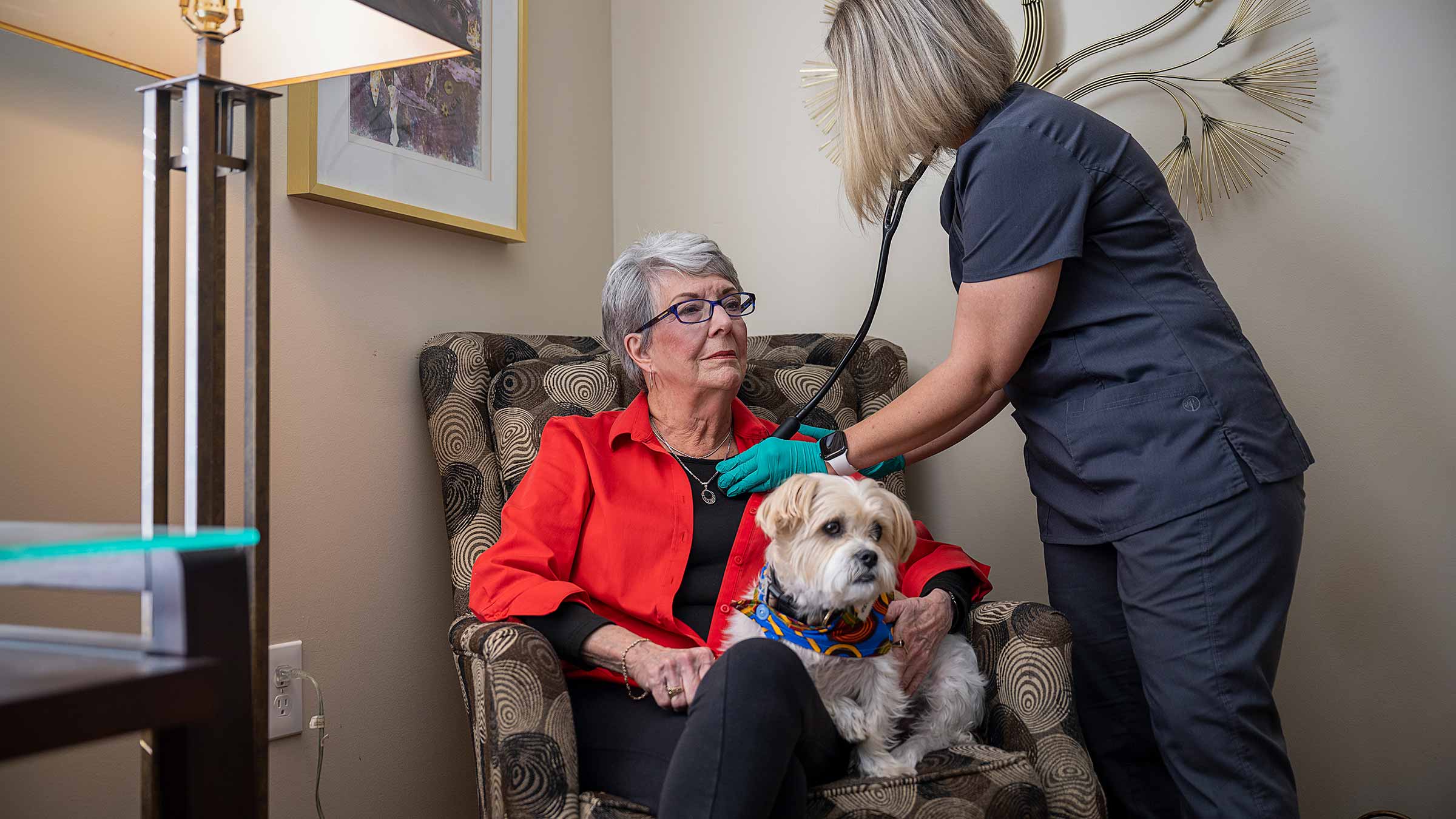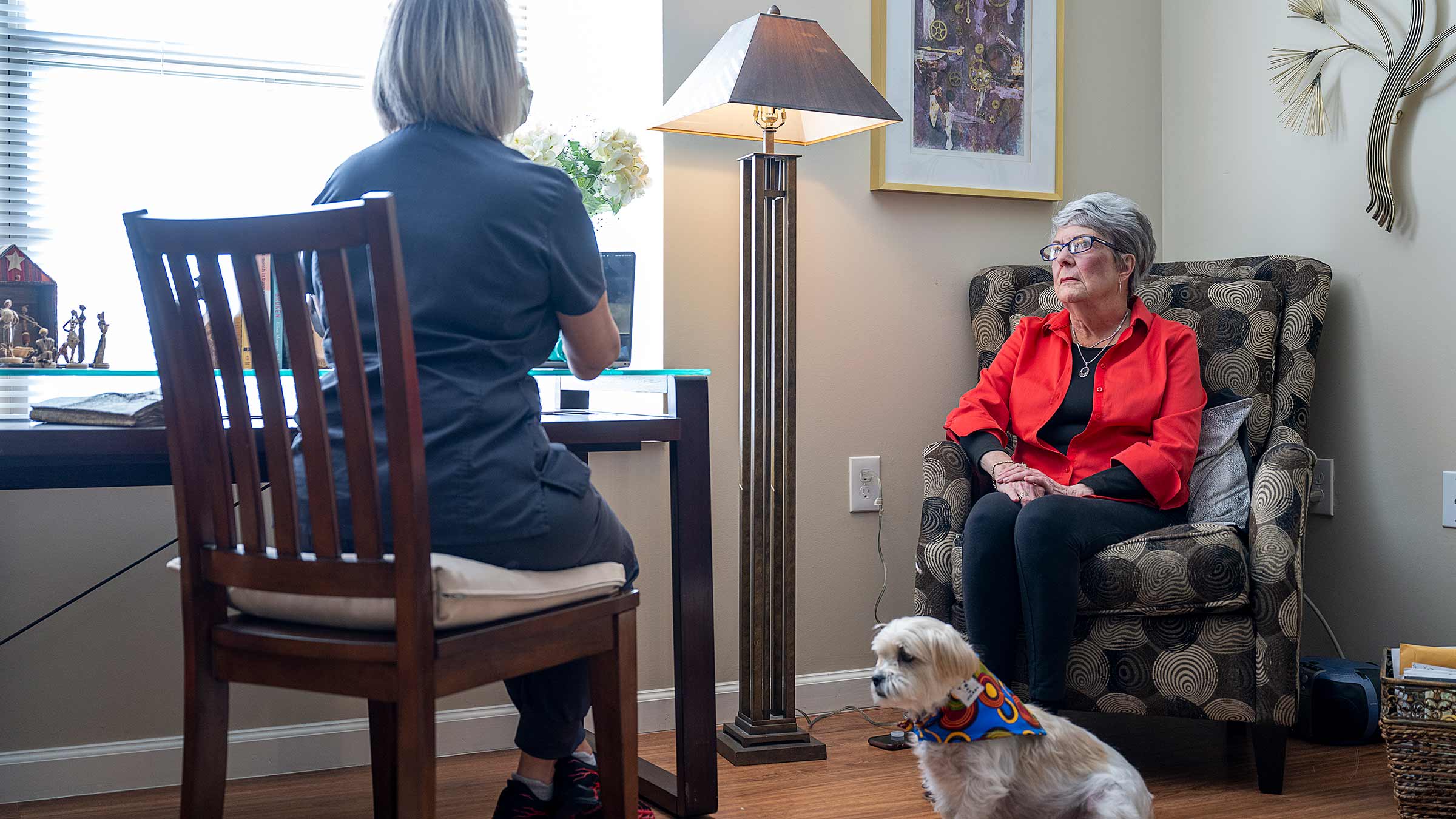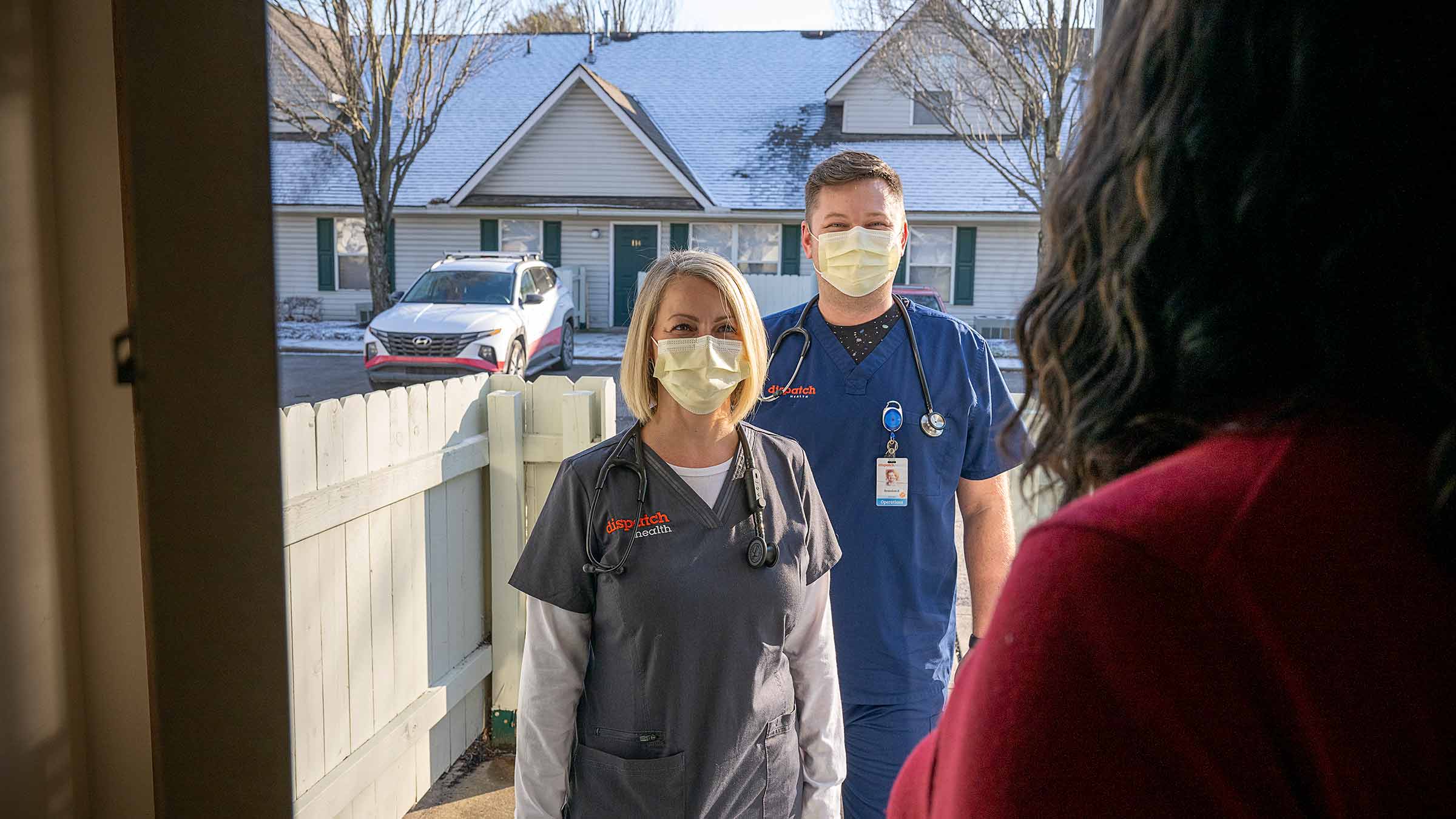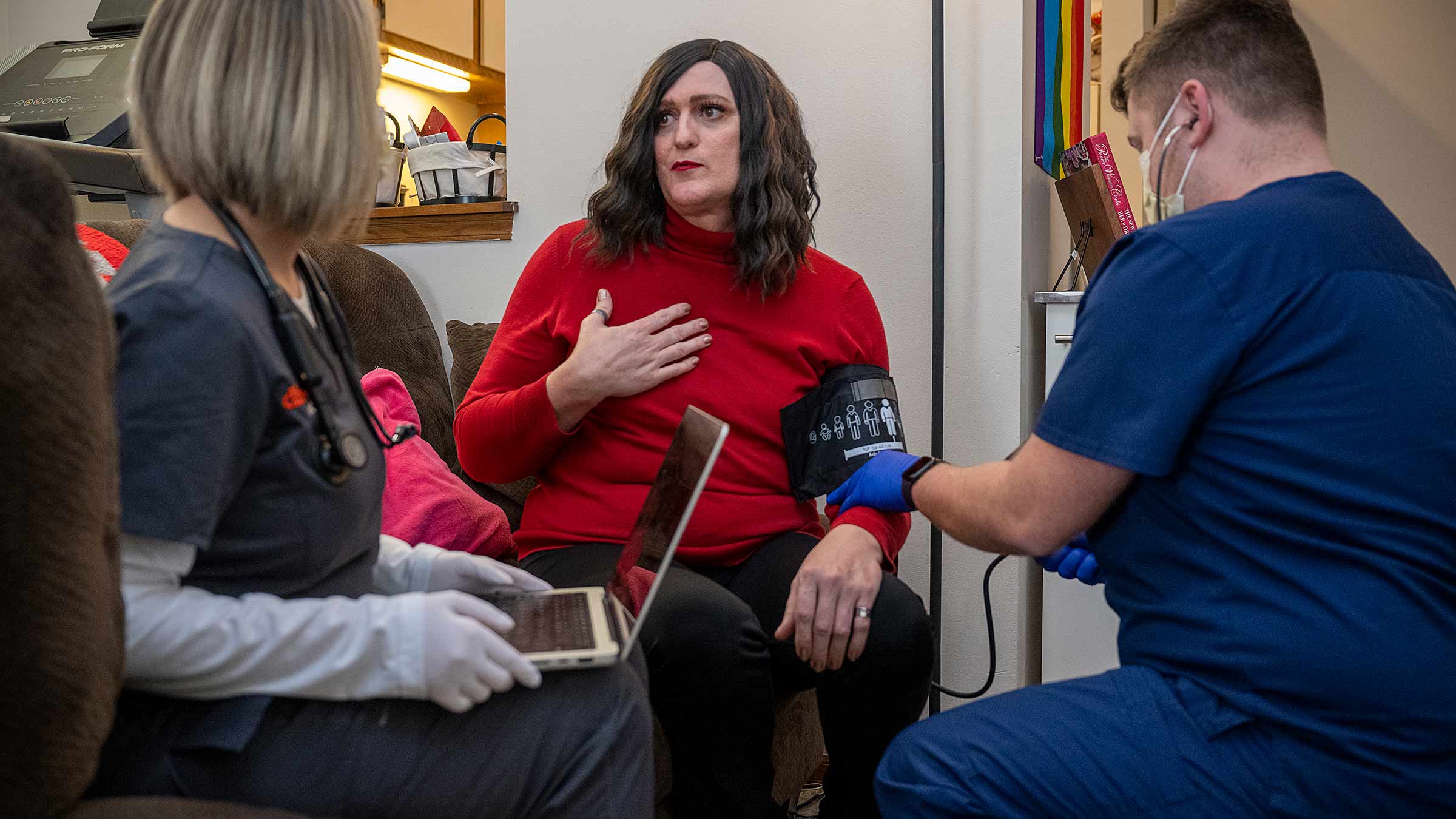
Get expert care in the privacy of your home
Our home-based care services meet you where you are when you need it most
Learn more Your source for health, wellness, innovation, research and science news from the experts at Ohio State.
Your source for health, wellness, innovation, research and science news from the experts at Ohio State.
There’s a powerful story behind every headline at Ohio State Health & Discovery. As one of the largest academic health centers and health sciences campuses in the nation, we are uniquely positioned with renowned experts covering all aspects of health, wellness, science, research and education. Ohio State Health & Discovery brings this expertise together to deliver today’s most important health news and the deeper story behind the most powerful topics that affect the health of people, animals, society and the world. Like the science and discovery news you find here? You can support more innovations fueling advances across medicine, science, health and wellness by giving today.
Subscribe. The latest from Ohio State Health & Discovery delivered right to your inbox.
SubscribeSandra Thames, active at age 80, had recently returned to central Ohio after visiting her daughter in Africa when her heart let her know that it wasn’t as reliable as it had always been.
A heart attack struck in May 2022, followed by another the very next month.
After a few emergency department trips and hospital admissions, Thames had four stents placed to keep arteries open and blood flowing, and her health care team at The Ohio State University Wexner Medical Center had diagnosed her with congestive heart failure. She’s determined to do whatever she can to avoid another trip to the ED or a hospital stay. She just can’t do it anymore.
To make that happen, she’s had a little help from a crew who’s available to stop by her home to provide medical services, like making sure she gets the proper dosage of medication, testing her blood for electrolyte or potassium levels, or checking for infection when she’s not feeling well.
The high-level in-home care from physician assistants, nurse practitioners and medical technicians is available through a new service the Ohio State Wexner Medical Center offers patients through a partnership with DispatchHealth.
“I thank God for them. I don’t know what I’d do without them,” says Thames, who started losing her eyesight about five years ago, has no family nearby and can’t drive to get anywhere easily. Ohio State, she says, is bringing back the days when doctors made house calls.
“To be able to call and have someone come here and check my blood, to check on me, is great,” says Thames.

Based on patient need, this new Ohio State partnership offers various types of services, including rapid flu, strep, COVID-19 and urine tests and blood work. Teams can handle anything from earaches and coughs to issues with congestive heart failure or chronic obstructive pulmonary disease (COPD). Patients who call for an appointment are asked some questions before getting assigned a crew who usually shows up within two hours.
The partnership began in July 2021, driven by the Ohio State Wexner Medical Center’s desire to offer an expanding range of home care services. It has since provided in-home urgent care visits to patients across central Ohio and post-discharge visits for recently hospitalized patients who quality.
High-quality home care is essential for patients with mobility and transportation challenges, says Andrew Thomas, MD, the Ohio State Wexner Medical Center’s chief clinical officer.
“We all got used to innovation in terms of virtual visits during the pandemic, when you could dial in and beam into your doctor’s office,” Dr. Thomas says. “This actually brings it back to something that’s 100 years old or older, where you can actually get that same level of care in your home with a house call.”
Ohio State Wexner Medical Center clinical teams and DispatchHealth's providers work to ensure comprehensive care coordination. At the end of every in-home visit, appropriate providers receive a summary report, typically within 24 hours.
Stephanie Januszki, PA-C, a DispatchHealth clinical lead advanced practice provider, says the service allows her to treat not just the body, but the mind and soul.
“We're bringing a personal level to medicine,” she says. “I’ve been practicing medicine for 25 years and have not been this personal or known my patients this well. That makes me actually feel really good about the company and really good about our mission.”
Thames says the teams listen, are patient and offer comfort when she has concerns.
“I’d adopt them if I could,” she says. “They are so compassionate. I just was amazed.”

Indra Bole, MD, an Ohio State Wexner Medical Center cardiologist who’s a member of Thames’ care team, says DispatchHealth is essentially an “urgent care on wheels” that can be especially beneficial for people who’ve recently been hospitalized with heart failure. Such patients often need close monitoring and follow-up care after discharge and have a relatively high risk of readmission in the short term.
“They need someone with an experienced eye just to look at them to make sure that they're improving, that they're not backsliding,” Dr. Bole says.
“There's someone there laying eyes on them and saying, ‘You know, it looks OK,’ or ‘It doesn't look so good. Maybe we should think about altering our treatment plan.’”
DispatchHealth teams provide that care. They visit the patient’s home to ensure medications are available as physicians intended and administered as recommended. They also check vital signs such as breathing rate, make sure energy levels are improving and facilitate lab testing as needed.
“With hospitalization often comes long emergency department stays and things that are really bothersome to patients and a hindrance to them receiving appropriate medical care,” Dr. Bole says.
“If you can get equivalent quality care at home, and get treatment for new problems that arise or continue treatment for existing problems at home, then that's better for everyone.”

Patient Jessica Chesnut, 51, says learning about DispatchHealth through her Ohio State Wexner Medical Center care team has helped put her mind at ease. She lives in Pataskala, east of Columbus, a good 30-minute drive from the closest hospital, and manages a number of health conditions that can make any travel longer than a short car ride painful and difficult.
“I have their number programmed in my phone and I also have on my refrigerator their little magnets,” she says. “Knowing that they're there — for me, it's a big relief.”
She manages Crohn’s disease that affects her digestive system, autoimmune hepatitis that affects her liver, avascular necrosis that affects her bone tissue and peripheral neuropathy that affects her nerves. She’s had hip and shoulder replacement surgeries and back surgery. DispatchHealth, she says, could be a good alternative to having to run to an emergency room if she has any flare-ups.
“Just knowing that they're there lessens my anxiety about any issues that I might encounter during the day,” Chesnut says.

Brandon Borders, DispatchHealth area operations manager, says the partnership is geared toward providing additional services for high-risk patients, immunocompromised patients or patients who struggle with mobility and transportation. It allows them to receive care for new simple problems, accidents or small emergencies, such as rashes, urinary tract infections, fall injuries, sprains or strains.
While a gut instinct might be to rush to the emergency room in such situations, that’s often not an easy experience for these patients, Borders explains. DispatchHealth is designed to make receiving care much easier.
Dr. Bole says services like this are unique and can improve the margin of safety for patients at home, give physicians comfort in knowing the status of patients and alleviate strain on hospital-based resources.
“I think it's sorely needed in the community, because our focus is making sure patients get better and stay better,” he says. “It speaks to where we are as a medical system at Ohio State. We’re looking to find ways to improve patient care that are innovative, and that not just help the patient in terms of their outcomes and their health care, but also their quality of life.”

Our home-based care services meet you where you are when you need it most
Learn more